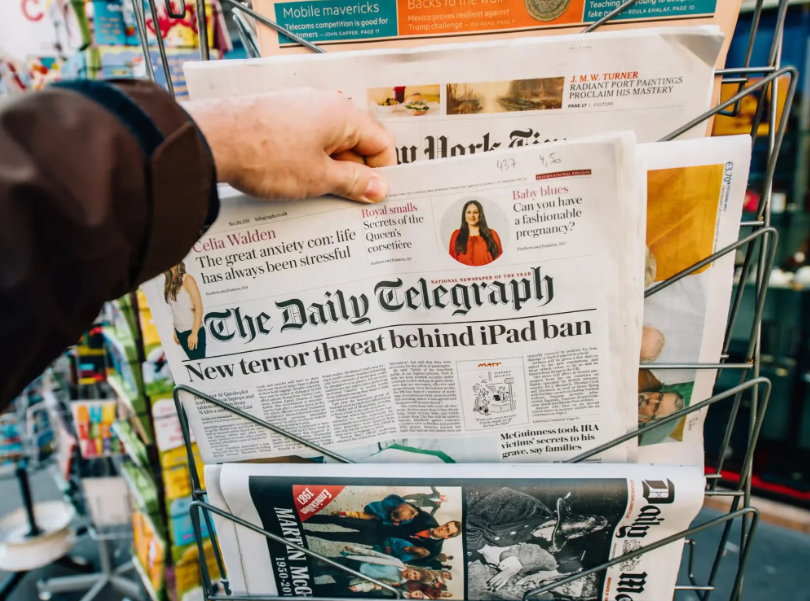Surely, media scrutiny should be consistent, not weaponised selectively.
The Telegraph – the perpetuator of last week’s BBC’s ‘crisis’ over alleged left-wing bias – has, once again, hit its own crisis. Yet when it comes to the Telegraph’s very prolonged crisis, the paper and its ideological allies, it seems, suddenly lose their voice.
This week, with barely a murmur from the right-wing press, the Telegraph’s long-running ownership saga collapsed yet again.
Earlier this week, Sky News reported that RedBird Capital Partners had abandoned its proposed £500m takeover of the Telegraph Media Group. RedBird, alongside Abu Dhabi-based International Media Investments (IMI), formally withdrew its offer, confirming:
“RedBird has today withdrawn its bid for the Telegraph Media Group. We remain fully confident that the Telegraph and its world-class team have a bright future ahead of them and we will work hard to help secure a solution which is in the best interests of employees and readers.”
The Telegraph has been stuck in ownership limbo for more than two and a half years, ever since lenders seized control from the Barclay family. A complex financing arrangement with RedBird IMI was scuppered after objections to foreign state ownership of British media.
In May, the government changed the rules, raising the cap on foreign state-owned investors from 5 percent to 15 percent. This in theory reopened the door for IMI, which would have taken a 15 percent stake. Yet even after the rule-change, the consortium walked away without explanation. Again, the outcry one might expect for a major national newspaper in disarray didn’t materialise.
Yet inside the Telegraph, the situation was anything but quiet. Sky News reports that newsroom unrest played a role in RedBird’s withdrawal. Senior figures, including former editor Charles Moore and former Spectator editor Fraser Nelson, launched an attack on RedBird, publishing articles demanding scrutiny of alleged links to Chinese influence.
RedBird denies any such influence, and no evidence has been publicly established. Nonetheless, the campaign within the Telegraph became so fierce that Moore accused RedBird founder Gerry Cardinale of threatening to “go to war with our entire newsroom.”
When journalists are openly attacking their would-be buyers, something is clearly amiss. Yet the wider right-wing media, normally so quick to frame instability elsewhere as symptomatic of a broader “crisis in public trust,” suddenly found no such narrative to deploy here.
Only a handful of outlets, such as the Guardian, have given the collapse the attention it warrants.
Potential new bidders are reportedly circling again, including GB News investor Sir Paul Marshall, and a previous consortium led by Lord Saatchi and Lynn Forester de Rothschild. But nothing is guaranteed, and the asking price remains contentious.
Meanwhile, morale inside the Telegraph newsroom is reportedly deteriorating.
“We’re sick of being the story,” one frustrated member of the newsroom told the Guardian.
“This sorry saga has dragged on for more than two years now and most of us just want to see the back of it,” they add.
For a paper that delights in diagnosing institutional malaise elsewhere, the irony is striking.
None of this is to say the BBC is above criticism. It isn’t. But surely, media scrutiny should be consistent, not weaponised selectively.
Left Foot Forward doesn’t have the backing of big business or billionaires. We rely on the kind and generous support of ordinary people like you.
You can support hard-hitting journalism that holds the right to account, provides a forum for debate among progressives, and covers the stories the rest of the media ignore. Donate today.




